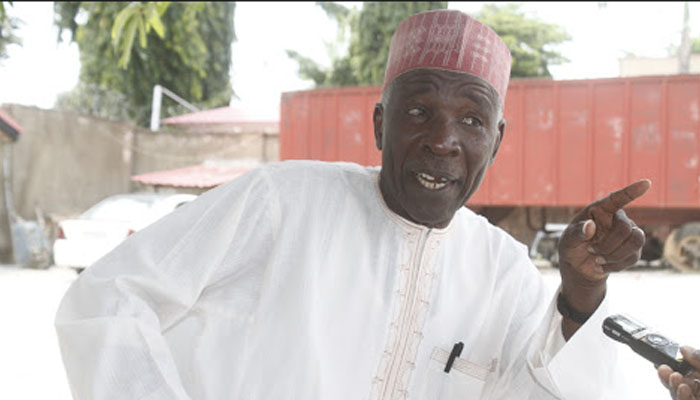A well-known leader of the New Nigeria People’s Party (NNPP), Buba Galadima, has once again highlighted the difficulties of being outspoken and hard-line in Nigerian politics. Galadima discussed his lengthy career in active politics in an interview with Channels Television, revealing that speaking the truth and being outspoken in the nation frequently leads to persecution rather than reward.
Because of the way Nigerian politics are set up, honesty and bravery have significant political and personal implications, according to Galadima. Regardless of their abilities or contributions, he clarified, leaders who dare to speak truth to power are typically intentionally excluded from positions of influence, blacklisted, and sidelined. “I’m the worst man in the Nigerian context, not bad, because Nigeria doesn’t like my type,” he said.
Nigeria’s political system punishes people who oppose injustice and impunity rather than rewarding integrity, the NNPP chieftain bemoaned. He emphasized that his experience over the years is evidence that many politicians choose loyalty to political godfathers and self-preservation over justice, accountability, and public service.
Galadima went on to relate a personal experience that brought to light Nigerian politicians’ tendency toward retaliation. He recalled that his daughter had been denied rights and advantages only because she was associated with him, even though she had run for and won a position on the council. Despite her rightful victory in the election, she was penalized for having a relationship with a guy that the political establishment considered a “troublemaker,” not for any personal transgressions.
Read Also: Online Fraud Fight: 192 Officers Trained on Cybercrime Solutions, Three Arrested
“This demonstrates the vengeful nature of Nigerian politics, where individuals are punished for their affiliations rather than their actions,” he said. He claims that this type of political victimization deters young Nigerians from getting involved in politics because it fosters an atmosphere in which integrity, hard work, and merit are frequently disregarded.
The seasoned politician also underlined that the issue transcends individual experiences. Since truth is given up for conformity, he maintained, when vocal people are repressed or marginalized, society as a whole suffers. He said that corruption, power abuse, and Nigeria’s sluggish progress are all caused by this.
Many political observers agree that patronage, nepotism, and intimidation continue to play a significant role in Nigeria’s democratic process, and Galadima’s remarks are a reflection of this larger reality. Real political change is hard to attain since reformers who oppose the system are either shut out or punished.
In spite of these obstacles, Galadima has stayed unwavering in his resolve to speak the truth, no matter the cost. He believes that when injustice and bad governance occur, there is no room for silence. His story is both a cautionary tale and an inspiration, a reminder that even if Nigerian politics can be unfriendly to those who speak the truth, democracy cannot survive unless the struggle for justice and integrity is not waged.



